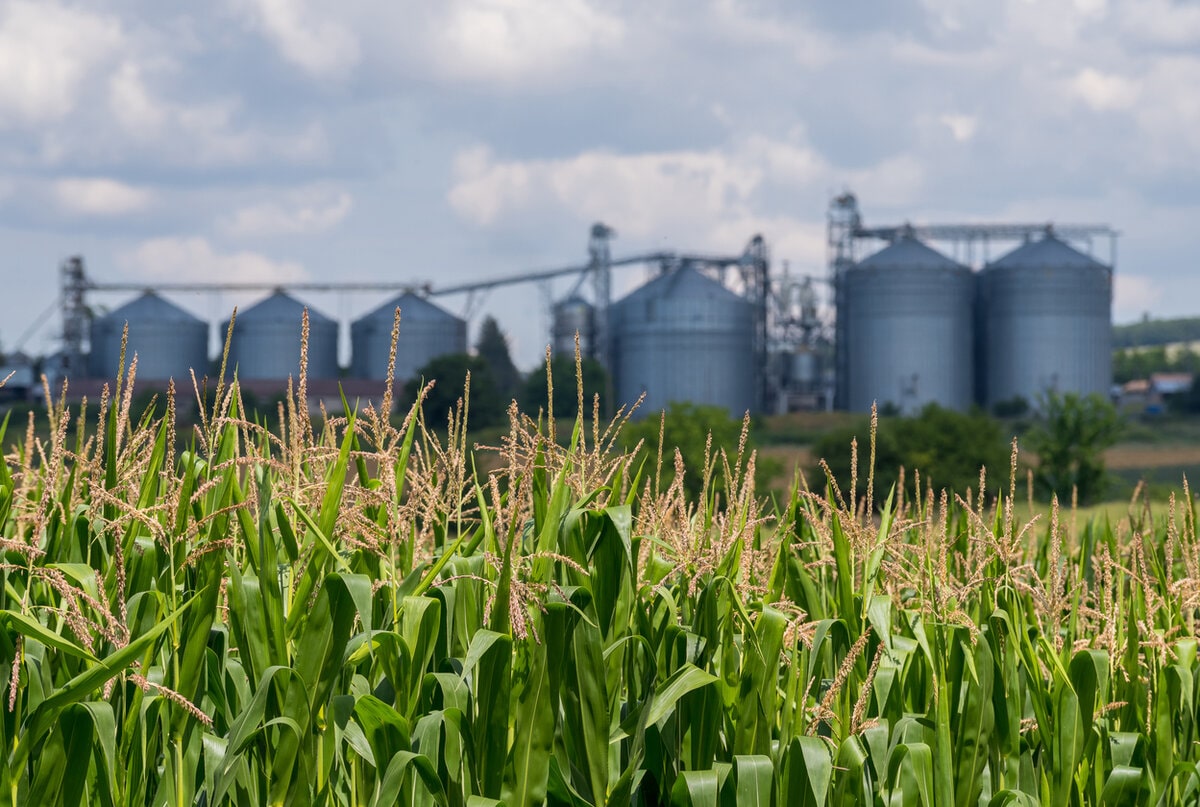In a broad sense, agricultural commodities are livestock and crops raised and grown on farms. These commodities are often used to feed humans and animals, but some have industrial uses. In the context of cattle feed, agricultural commodities are plant products and byproducts used as feedstuffs for your herd.
You can either buy commodities on the spot as you need them, or you can choose to enroll in commodity contracting. We’ll cover everything you need to know about ag commodities for cattle feed and commodity contracting so you can decide if it’s the right move for you and your herd.
What Agricultural Commodities Can Be Used for Cattle Feed?
Agricultural commodities used in livestock feed play a crucial role in cattle nutrition. Their inclusion in feed can impact cattle health, growth, and productivity. Here are a few key commodities used in cattle feed:
- Canola Meal: Protein-rich ingredient for supporting growth and milk production
- Calcium Salt: Energy source that can increase milk production and improve cow fertility
- Cereal Fines: Byproducts of grains like wheat, barley, or oats that help support digestive health
- Corn: Excellent energy source thanks to high carb content
- Corn Gluten Feed: Rich in protein and fiber to serve as an energy source
- Cottonseed: Provides protein, energy, and fiber to improve milk fat content or support beef cattle weight gain
- Expelled Soy: Supports growth and energy needs
- Palm Fat: Source of additional calories to support lactation in dairy cows
- Soybean Meal: High in protein to support muscle growth and overall health
- Soybean Hulls: Fiber source that helps support the digestive process
What Is Commodity Contracting?
Commodity contracting is a financial agreement between a buyer (you) and a seller (a feed company like Star Blends). You receive a set price for a specific volume of specific commodities for a specified period of time. These commodities can be delivered either straight to your farm or included in a commodity cattle feed mix.
Think about how gas prices fluctuate day to day. The same thing happens with agricultural commodities. Commodity contracting is like agreeing today to purchase 10 gallons of gas next month at a set price — no matter what the market price that day is.
Key features of a commodity contract
A few elements must be decided on and included in your commodity contract, such as:
- Commodity and usage type: The contract is for a specific commodity in a specific form (mixed into feed or straight to farm).
- Price and quantity: Your contract will state the price per unit of the commodity and the total quantity to be delivered.
- Delivery terms: The contract will outline delivery conditions, including location, timeframe, truck type needed (if straight to farm), and other logistics.
- Payment terms: The contract will specify payment terms, including the timing of payments.
What Are the Benefits of Commodity Contracting?
Commodity contracting comes with two main benefits: price stability and supply assurance.
Price stability
A commodity contract allows you to lock in a price for specific commodities in advance. You can secure a guaranteed price for the crop, which might be below market rate and help you lock in profits.
Additionally, this price stability helps with risk management due to price fluctuations. You don’t have to worry about shifts in the market, and you are better set up for budgeting and financial planning.
Supply assurance
Contracting ensures you have a reliable supply of the commodities you need. You never know when shortages might happen, and you don’t want to find yourself without the necessary crops and nutrients for feeding your cattle. You are more likely to be prioritized and have your allocations met with a contract in place.
How Does Commodity Contracting Work?
While contracting might sound complicated, it’s actually pretty simple. Your contract will outline all the features we mentioned earlier, like the commodity, quantity, price, and timeframe. Once the timeframe has started, you receive the commodity either straight to the farm or in a feed mix (as specified in your contract) at the predetermined price. There is no upfront payment, and you will be invoiced upon shipment.
If you contract with a company like Star Blends, you may have two contract options: monthly or term.
Monthly contract
In a monthly contract, you contract a specific portion of the commodity each month. You will have to pay spot prices for anything beyond your monthly allocation. For example, if you contract 50 pounds of corn for the month but use 75 pounds, that other 25 pounds will be invoiced at the current market price, not your contract price.
Term contract
With a term contract, you contract the total amount of a commodity. You will continue to receive the contracted price until the total amount of the feed is used or the shipment period has ended. If you contract for your projected corn usage of 50 pounds, you will continue to receive the contract price until all 50 pounds of corn are used. Remember that if your corn usage exceeds the projected 50 pounds, you may be subject to spot prices for the rest of your contract timeframe.
Protect Your Future with Star Blends Commodity Contracting
Searching for agricultural commodity trading companies? You’re in the right place. Star Blends offers commodity contracts that meet your needs. Whether you want your commodity in mixed feed or sent straight to your farm, we have monthly and term contracts to help you lock in prices. Contact our team today to learn more about how our commodity contracts can help your herd.



